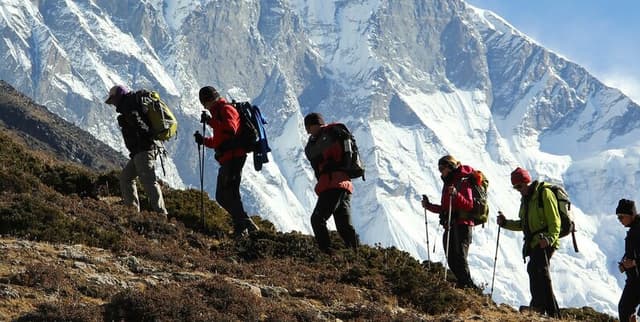Historic Himalayan Ascents
Data Science and Analytics
Tags and Keywords
Trusted By




"No reviews yet"
Free
About
This dataset contains records for over 11,000 expeditions conducted in the Himalayas, spanning from 1905 to 2024. It offers a detailed view into historical mountaineering activities, including expedition outcomes, the routes taken, and key participant information such as nationality and leadership. The dataset is ideal for analysing trends in Himalayan ascents, understanding the challenges faced by expeditions, and exploring the evolution of mountaineering over more than a century.
Columns
The dataset primarily includes the following columns:
- expid: A unique identifier for each expedition.
- id: A record identifier.
- peakid: An identifier for the specific peak associated with the expedition.
- year: The year in which the expedition took place.
- season: The particular season of the expedition, such as Autumn or Spring.
- host: The country from which the expedition's ascent commenced.
- route1: The name of the primary route attempted or used by the expedition.
- route2: The name of a secondary route, if applicable.
- route3: The name of a third route, if applicable.
- route4: The name of a fourth route, if applicable.
- nation: The principal nationality associated with the expedition.
- leaders: The names of the expedition leader or leaders.
- sponsor: The sponsor of the expedition, if any.
- success1: A boolean indicator of success for the first route.
- success2: A boolean indicator of success for the second route.
- success3: A boolean indicator of success for the third route.
- success4: A boolean indicator of success for the fourth route.
- ascent1: Details regarding the ascent number for the first route, such as '1st' or '5th'.
- ascent2: Details regarding the ascent number for the second route.
- ascent3: Details regarding the ascent number for the third route.
- ascent4: Details regarding the ascent number for the fourth route.
- claimed: A boolean indicator specifying if the expedition claimed summiting without sufficient evidence.
Distribution
The dataset is provided in CSV format and is approximately 5.77 MB in size. It contains over 11,400 individual expedition records.
Usage
This dataset is well-suited for a variety of applications, including:
- Mountaineering Research: Analysing historical trends in expedition success, routes, and fatalities.
- Risk Assessment: Studying factors contributing to accidents and deaths in high-altitude environments.
- Geographical Analysis: Mapping popular peaks and host countries for Himalayan ascents.
- Historical Studies: Understanding the evolution of mountaineering techniques and international participation over time.
- Statistical Modelling: Predicting expedition outcomes based on various attributes.
Coverage
The dataset covers expeditions in the Himalayas from 1905 up to 2024. Geographically, it includes expeditions starting from various host countries, with Nepal being the most common origin. Expedition nationalities are also included, with the USA and Japan being notable. Data is available across different seasons, with Autumn and Spring being the most frequent.
License
CC0: Public Domain
Who Can Use It
This dataset is highly valuable for mountaineering historians, academic researchers in geography and sociology, data scientists focusing on historical or geospatial data, outdoor adventure enthusiasts, and organisations involved in expedition planning or safety. It can inform studies on human endurance, risk management in extreme environments, and the cultural aspects of exploration.
Dataset Name Suggestions
- Himalayan Expedition Archive
- Historic Himalayan Ascents
- Mount Everest and Beyond: Expedition Records
- Himalayan Peaks Expedition Data
- Global Himalayan Expedition Log
Attributes
Original Data Source: Historic Himalayan Ascents
Loading...
Free
Download Dataset in ZIP Format
Recommended Datasets
Loading recommendations...
